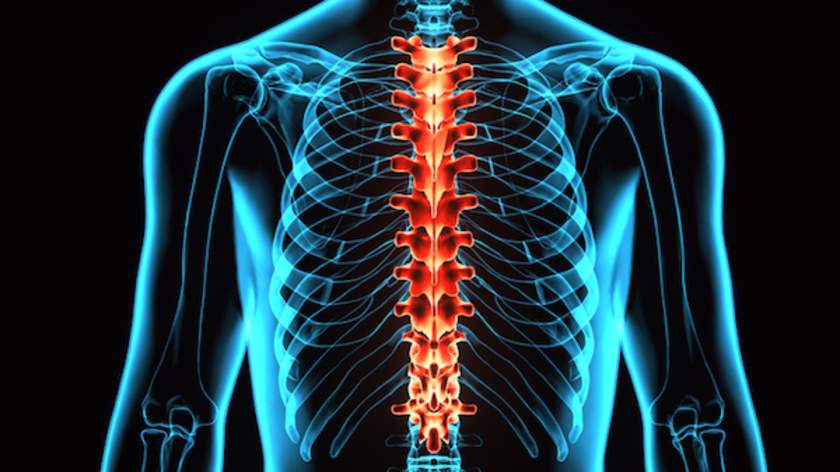Do you constantly feel tired experience muscle spasms and notice your eyes twitching? If so there’s a chance that your body is suffering from a magnesium deficiency.
Sugar cravings

According to Fiona Tuck a nutritionist and author of the forensic nutritionist an investigative approach into health and well-being a burning desire to eat something sweet shows a lack of important nutrients including chromium and magnesium. When it comes to magnesium loss in women it’s often connected with menstruation and if you work out the real reason behind these cravings maybe your intense training since your body spends magnesium on muscle work. Whatever it is you definitely shouldn’t ignore these sudden changes.
Muscle soreness and cramping

If you notice that you’ve started to experience muscle soreness and cramps regularly and you haven’t been hitting the gym harder or anything. It could be your low magnesium levels to blame. A study that was conducted by the department of pediatrics at Philadelphia’s Thomas Jefferson University confirm that muscle weakness is one of the most common signs of a magnesium deficiency. If you want to solve this problem at home try to massage the affected muscles in a circular motion for a couple of minutes every day. However it’s still better to visit your doctor and let them take proper care of this issue.
Insomnia

German scientists found that magnesium provides a huge helping hand in activating your parasympathetic nervous system which basically helps your brain relax. So if you lack magnesium it’s not surprising at all if you develop insomnia and sleep troubles plus a magnesium deficiency is closely connected to muscle right this combo can cause restless leg syndrome a really unpleasant condition that involves a pins and needle sensation and an uncontrollable desire to move your legs. So the earlier you consult your doctor and get to the root of the problem the better.
Bone problems

Another red flag for magnesium deficiency is bone problems. A study conducted by the department of metabolism at the Osaka City University Graduate School of Medicine in Japan revealed that low magnesium levels increase the risk of developing bone problems. Especially fractures and that’s because a low amount of magnesium reduces the level of calcium in your blood as well. Making your bones a lot weaker so don’t overlook this alarming signal and make sure to get professional help.
Acid reflux

Naturopathic physician dr. Melissa Glover says that magnesium prevents the release of food and stomach acid into the esophagus. So if your system lacks it this process reverses allowing acid to enter the esophagus. This leads to a burning sensation that’s often called acid reflux or heartburn. If this sounds a lot like your current condition you should surely visit a doctor check it out and follow their advice.
Stress and apathy

We all have days when we feel so exhausted that we just want to stay in bed all day long. However if this feeling doesn’t go away you have a problem and it may have something to do with your magnesium levels. You see this essential element is responsible for building a strong nervous system and helping you relax. So in sufficient magnesium basically equals anxiety and constant stress and this is exactly why your depression may have nothing to do with your emotional side. It could be purely physical. Visiting a doctor will definitely help you sort things out and return to a happy state of mind.
Constipation

The reasons why you may have constipation can vary from stress to a serious under consumption of fiber and of course magnesium can be a cause of it too. It has a relaxing effect on many parts of your body including the digestive tract therefore if your system is short of this mineral your intestines won’t work properly. Resulting in constipation again consulting your doctor is the only way you can fix this problem once and for all.
Fatigue

Just like with stress and apathy fatigue itself isn’t always a sign of internal problems. You may just be tired but persistent fatigue is a red flag you should always pay attention to and here’s where magnesium could be the culprit. The thing is this mineral is absolutely necessary for creating energy in our cells without it you won’t have enough energy even on the cellular level. That’s when you start to experience fatigue low energy and a total lack of mobility. So maybe it’s time to let your doctor handle it after all it’s certainly a better solution than trying to blindly fight this condition yourself.
Severe headaches

If you lack vitamins a b c and d it can lead to frequent headaches that usually affect only one side of your head depending on the vitamin you’re lacking but if you’re dealing with a magnesium deficiency your condition could be way worse since it can cause severe migraines you see with a decrease of magnesium the blood vessels in your brain start to narrow and expand quickly causing extreme pain. So instead of thinking that it will go away on its own or trying to treat it with over-the-counter painkillers make an appointment to see your doctor.
High blood pressure

One study that was conducted by French researchers showed magnesium deficiency increases blood pressure other observational studies conducted by English and American scientists also connect low magnesium levels to raised blood pressure. As you may know high blood pressure only heightens your chances of developing heart disease. Thankfully, there are some natural ways to deal with this problem like exercising regularly consuming less alcohol and caffeine and not smoking. A potassium-rich diet can also be beneficial. So add more vegetables especially potatoes and tomatoes fruits like melons oranges and apricots dairy products and dark chocolate to your diet.
Some Helpful Resources
Magnesium: Health benefits, deficiency, sources, and risks
10 Evidence-Based Health Benefits of Magnesium
What you should know about magnesium
Magnesium – The World’s Healthiest Foods
Maximizing Your Testosterone- Is Magnesium a Solution?
Magnesium – How it affects your sleep – Your Guide to Better Sleep
Magnesium Dosage: How Much Should You Take per Day?
6 Things to Know Before You Take a Magnesium Supplement
A Guide to Different Types of Magnesium
Please Share




